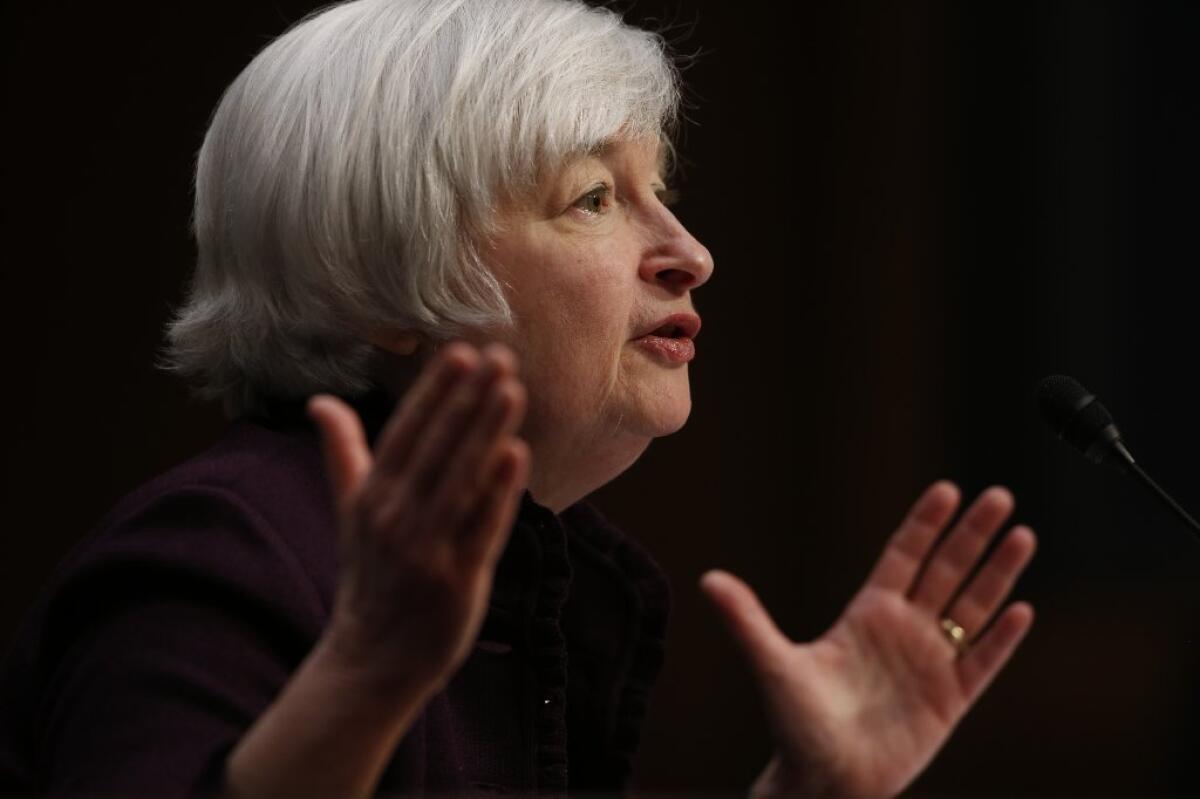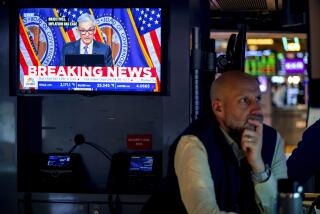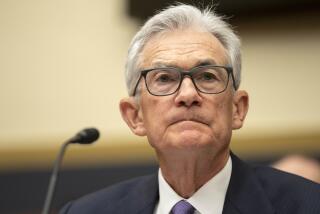What is the likely path of Fed interest rates?

Federal Reserve policymakers conclude their two-day meeting Wednesday, and it’s almost certain that the central bank will make another cut in its bond-buying stimulus and downgrade its near-term economic growth outlook to reflect the poor first quarter.
But what markets will be looking for are clues to this central question: Will the Fed make a change in its projections for the likely path of short-term interest rates?
With the job market and inflation gathering steam in recent months, some analysts think the Fed could signal that it could start raising its benchmark rate sooner than the widespread expectation of the middle of next year. The so-called federal funds rate, which influences the interest that consumers and businesses pay for loans, has been pinned near zero since December 2008, and a shift could jolt financial markets.
Since their last policy meeting in April, Fed officials have seen two months of solid job growth, adding credence to the view that the hiring slowdown earlier in the year was a hitch due to the unusually harsh winter. At the same time, a leading gauge of inflation shows consumer prices have been climbing steadily higher since March, to just about the Fed’s 2% target.
The Fed has a dual objective, to control inflation and maximize employment. Given the slow economic and jobs recovery, and subdued inflation, policymakers had been putting more focus on employment. But the jobless rate has dropped faster than expected, from 7.2% last fall to 6.3% as of May.
Fed Chair Janet L. Yellen and others still see a lot of underlying weakness in the labor market, with many long-term unemployed and millions of others who want full-time work but can only get part-time hours. This argues for keeping interest rates low for a longer period.
But other experts, including some of Yellen’s colleagues on the Fed’s policymaking committee, don’t think the labor slack is quite so big. In their view, the employment situation has improved to the point where wages will soon start to rise faster, and that will add further pressure on inflation that already has seen relatively large increases for food, oil and various services such as healthcare.
For this camp, keeping the Fed’s easy-money policy in place too long is seen as risking higher inflation and more bubbles without really being able to help many more distressed workers. So it wants to see an earlier move to normalizing Fed policy.
The Fed’s policymaking committee this week includes three new members -- board governors Stanley Fischer, also the Fed’s vice chair, and Lael Brainard; and Loretta J. Mester, the new president of the Federal Reserve Bank of Cleveland, who is a voting member this year.
The central bank will release a statement at 2 p.m. EDT, along with policymakers’ latest projections on economic growth, inflation and unemployment rates. That will be followed by a press conference during which Yellen is expected to take a wide range of questions, including her position on the future path of Fed interest rates.







